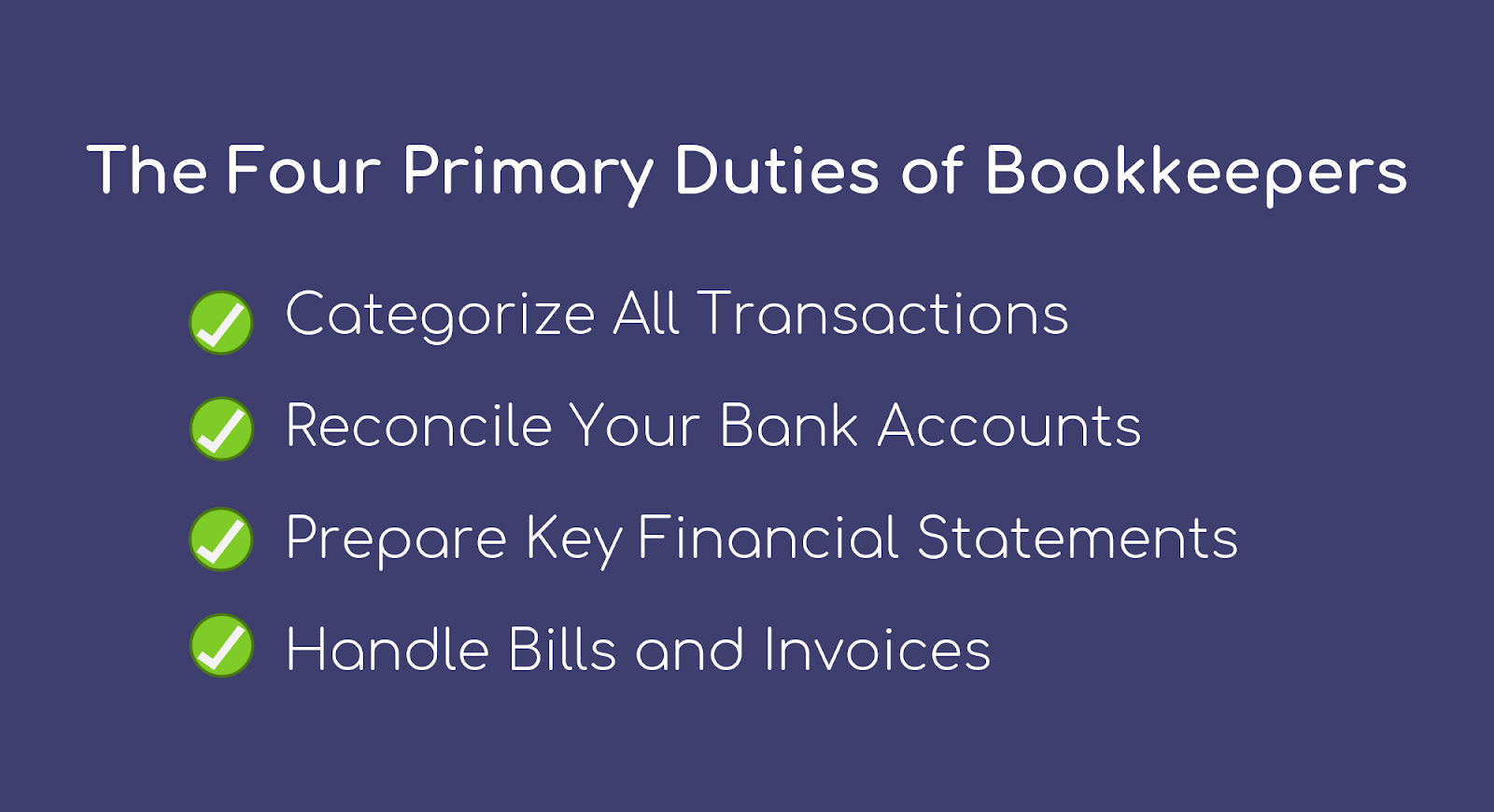What Does a Bookkeeper Do? (Plus How to Find a Good One)
A confirmation email has been sent to your email.

Keeping complete and accurate financial records isn’t the most glamorous part of building a company, but you can’t have a solid business without them. It’s about more than just spreadsheets and software — sound bookkeeping is the foundation that equips you to make intelligent business decisions.
Many founders either don’t have the time or don’t have the expertise to do their own bookkeeping. The right bookkeeping solution can save you valuable time and hassle without sacrificing your financial health.
In this article, we discuss what bookkeepers actually do, and how to choose a good one for your business.
At Pilot, we have a team of expert bookkeepers using unique tools to automate the most error-prone aspects of bookkeeping. If you want to keep better books, try Pilot Now.
What Is a Bookkeeper?
Simply put, a bookkeeper is someone who manages and records all the financial goings-on of your business. They track financial transactions and ensure your accounts and records are accurate and complete.
The Benefits of Working with a Bookkeeper
Working with a professional bookkeeper offers myriad benefits for your business and finances. In a nutshell, it comes down to these four vitally important services:
- Clear, accurate, and comprehensive financial records that are ready for investors or the IRS.
- A plain English translation of those records to help you better understand your financials and what they mean for your business.
- Less time spent on minutiae and spreadsheets, and more time building your business.
- Capable accounts payable and accounts receivable — so your cash flow is balanced and moving.
Can I Keep My Own Books?
If you’re financially minded and have a lot of free time on your hands, then yes, you probably can keep your own books. But let’s be real — your time and brain power are better spent growing your business.
Using an experienced bookkeeping service like Pilot means you’ll always be ready to produce your books if the IRS comes knocking. Plus, you’ll have a complete and accurate financial picture to provide investors. And that’s a great thing to have when you’re trying to convince them you’re serious about building your business.
I Use Accounting Software — Do I Need a Bookkeeper Too?
If you’re using QuickBooks, Wave, or other accounting software to send invoices, record transactions, and pay employees and contractors, you might wonder if you need a bookkeeper at all.
Here’s the thing: Accounting software captures information, but it doesn’t help you make sense of it. And even the best software can’t capture everything. QuickBooks entries often need to be categorized and amended by hand.
That’s one of the most valuable benefits of working with a bookkeeper. They keep your financial data in order so an accountant can make accurate strategic decisions.
What Do Bookkeepers do?
The TL;DR version is that bookkeepers give you a monthly snapshot of your business’s finances.
The information they give you represents the bedrock of your company’s financial health. Bookkeepers ensure that data is accurate and comprehensive, so it can inform your financial decisions and strategy.
Bookkeepers handle these four primary duties:

1. Categorize All Transactions
A bookkeeper gathers all your transactions from payroll, expenses, payment processors (like Stripe or PayPal), and more. They also make sure every transaction is accounted for and categorized correctly.
Aside: At Pilot, we write rules for transactions so they can be automatically categorized instead of doing it all by hand. That’s part of the reason our bookkeeping service is more accurate than human-only services.
2. Reconcile Your Bank Accounts
Between credit cards, banks, and other financial accounts, it’s easy for transactions to get lost, duplicated, or otherwise messed up. Part of a bookkeeper’s job is to reconcile all the transactions for those accounts to ensure everything agrees.
They’ll make sure the balances in your accounting software match up with the actual balances in your accounts and keep an eye on how all the money moves.
3. Prepare Key Financial Statements for Your Business
Every business needs key financial statements on a regular basis. Whether you’re showing them to potential investors, sending them to the IRS, or using them to make financial decisions. A bookkeeper will prepare those documents and ensure they’re based on accurate and complete information. Those key statements include:
- Income/Profit & Loss statement: The Income Statement lays out all of your revenues and expenses for the year.
- Cash flow: Your cash flow statement shows how money moves into and out of your business.
- Balance sheet: The balance sheet includes all of the assets, liabilities, and equity that exist in your business at a given time.
Plus a bonus, very-nice-to-have statement:
- Burn reports: Burn reports show startups and other new companies how quickly they’re spending cash (often venture capital) so they can understand how long they can sustain operations.
4. Handle Bills and Invoices
On top of tracking and recording transactions, some bookkeepers will also manage your business’s bills and invoices. That often includes managing accounts payable and accounts receivable.
Bookkeepers vs. Accountants: How Are They Different?
Bookkeepers and accountants are frequently confused. Both deal with your financial info and records, after all.
There are two key differences between bookkeepers and accountants:
- Accountants are regulated. They have to be certified to become an accountant. Anyone can become a bookkeeper.
- Bookkeepers manage information, while accountants interpret it.
Bookkeepers focus solely on maintaining accurate and complete financial data. Their job is to provide timely and digestible information to the decision-makers in a company.
Accountants, on the other hand, are more involved in using that information for broader strategic planning and interpreting your books. They make recommendations and craft financial strategy for the business (like putting together a budget).
Do Bookkeepers Do Taxes?
One of the biggest misconceptions about what bookkeepers do centers around taxes. The straight answer is, No: Bookkeepers are not certified to prepare or file your taxes. If you want someone to assist you at tax time, you should work with a Certified Public Accountant (CPA) or Enrolled Agent (EA) during tax season.
Choosing a Bookkeeper
We’re firm believers that every business needs a bookkeeping solution, but how you fill that gap depends heavily on the balance between your bookkeeping needs and your budget.
There are four options when it comes to bookkeeping solutions. Choosing the right bookkeeper for your business starts with deciding between those options. You can:
- Hire an in-house bookkeeper to work with your team full-time.
- Use bookkeeping software and fill in the gaps yourself.
- Hire a human-only bookkeeping firm.
- Use a hybrid service that combines human knowledge with the efficiency of automation.
The right option for you comes down to a number of considerations, including:
- Your budget.
- The tasks you need handled.
- The size of your business.
- Plans for growth: taking on funding, scaling, etc.
The ultimate goal is to find the most capable bookkeeping solution that can work for your business in the long run, not just today. That’s why it’s vital to weigh your options through the lens of those four considerations, so you can find the right bookkeeper for you — instead of jumping at the first Google search result.
What Makes a Good Bookkeeper?
Regardless of which bookkeeping solution you choose, there are a few things that every great bookkeeper should bring to the table. When weighing your options, indulge a heavy bias toward bookkeepers who are:
- Experienced and reliable.
- Passionate about helping your business grow.
- Able to translate your books so they make sense to you.
A good bookkeeper enables you to focus on building your business and arms you with the right financial data to make those decisions. Insightful data that can help you grow, and grow better, is always worth investing in.
At Pilot, we have a team of expert bookkeepers using unique tools to automate the most error-prone aspects of bookkeeping. If you want to keep better books, try Pilot Now.


